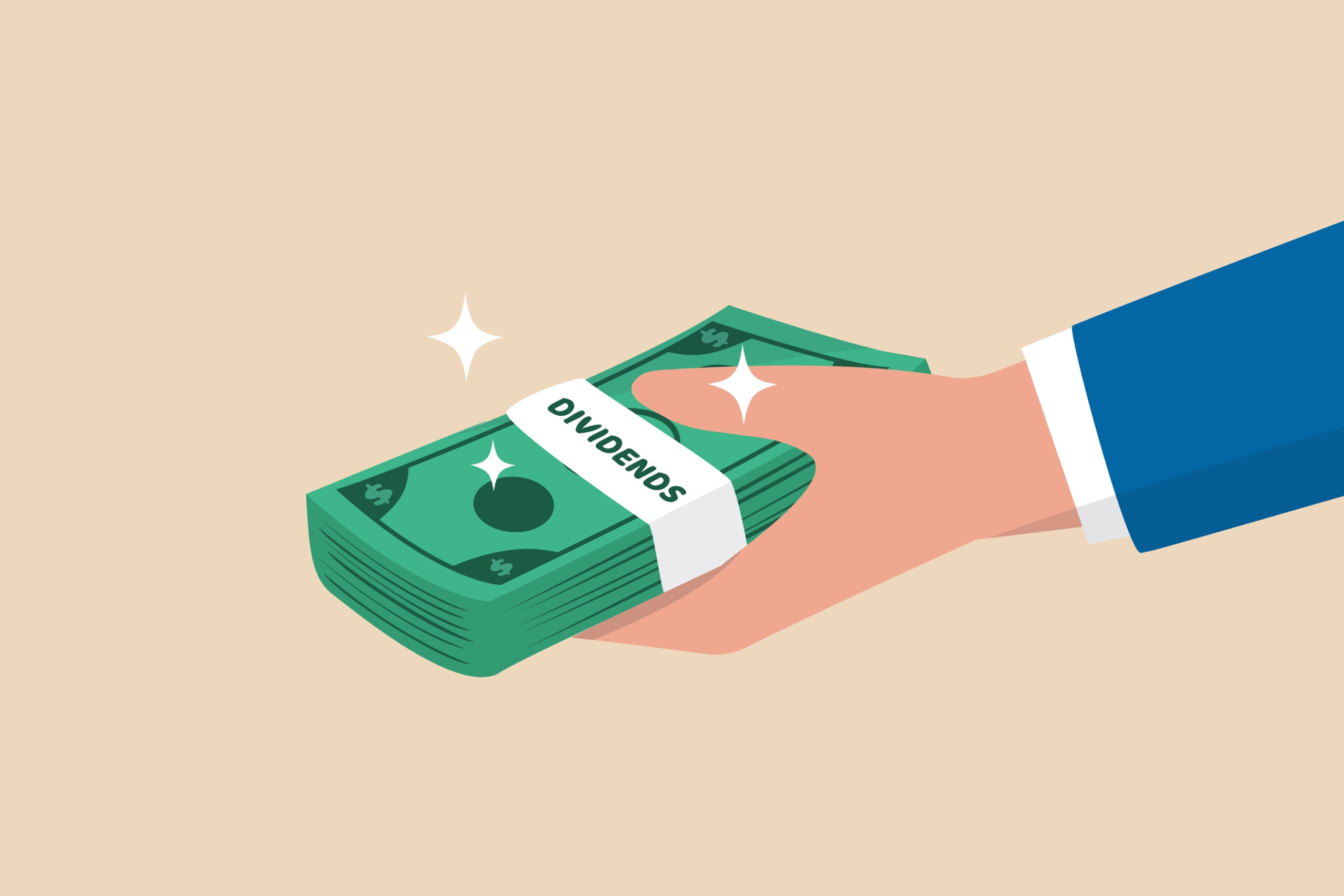Summary: What are Dividends?
Dividends are payments made by companies to share profits with their shareholders, typically in the form of cash or additional stock. Alongside capital appreciation, dividends represent a key way to earn income from owning shares.
While dividend yield is often cited as a measure of value, it’s frequently misunderstood. Before building dividends into your investment strategy, it’s important to understand how they work, what they signal about a company, and how they can impact your long-term returns.
Why do Companies Issue Dividends?
Companies generate dividends from excess cash flow, which remains after fulfilling all obligations, including expenses and debt payments. After meeting obligations, a company can decide to retain excess cash for future investment or distribute it to shareholders.
Traditionally, companies returned capital to shareholders through dividends. In recent years, however, stock buybacks have become increasingly common. While they have drawn criticism from some public figures, stock buybacks generally serve a similar purpose. When a company repurchases its own shares, the number of shares outstanding decreases. This leads to a higher earnings per share (EPS) figure, since the same amount of earnings is spread over fewer shares. A higher EPS can support a higher stock price. One reason companies pursue buybacks is to offset the dilutive effect of stock-based compensation. Many large firms, such as Meta (formerly Facebook) and Tesla, compensate employees with shares. To manage the impact of these new issuances, companies often repurchase shares on the open market.
Regardless of the chosen option, both dividends and stock buybacks aim to distribute earnings to shareholders.
What Makes Stock Dividends Attractive?
Many investors are attracted to the perceived “stickiness” of dividends. To indicate the strength of their operations, companies will often reference their track record of issuing dividends without forgoing a payment. Companies see stock buybacks as occasional events with excess cash, whereas dividends offer consistency and reliability. For investors relying on the income generated from their portfolio, consistent dividend payments can help in budgeting to determine expected cash inflows.
How Much Should Dividend Yield Weigh Into Your Investment Strategy?
Much attention focuses on the appeal of a high dividend yield. As I mentioned in a previous piece, emphasizing dividend yield at the expense of other financial fundamentals is excessive. Common shareholders receive dividend payments after fulfilling debt servicing and preferred dividends obligations since these payments are optional. Income from dividend payments in a taxable account is subject to ordinary income tax, without a capital gains deduction.
As an investor, your concern should be on the total return of an investment, rather than just dividend payments. Earning income off of a position is great, but your overall return can still be negative if you experience sufficient capital depreciation to offset dividend payments. And remember, a stock’s dividend yields express as a percentage of its price. Beware of an “attractive” yield; it could be due to a sharp stock price drop, risking dividend reductions.
There are no guarantees in investing. At first blush, a high dividend yield is always appealing. Just remember to always do your due diligence. After all, it’s your hard earned money that’s at stake.
Opinions are those of the author and may not reflect those of BMO Private Investment Counsel Inc., and are not intended to provide investment, tax, accounting or legal advice. The information and opinions contained herein have been compiled from sources believed reliable but no representation or warranty, express or implied, is made as to their accuracy or completeness and neither the author nor BMO Private Investment Counsel Inc. shall be liable for any errors, omissions or delays in content, or for any actions taken in reliance. BMO Private Investment Counsel Inc. is a wholly-owned subsidiary of Bank of Montreal.

